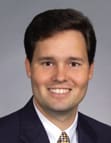Management Essentials
Go With the Flow
By Farrell “Toby” Tyson, MD, FACS
Bruce Lee is probably the most famous martial artist of our time, but few are aware that he developed his own form of kung fu known as Jeet Kune Do — a mixture of martial artistry and philosophy. The founding principals of the system easily adapt to ophthalmology to combat the looming threats of our profession.
Simplicity
A believer in simplicity, Bruce Lee stripped down other styles of martial arts to focus on the core of their practices and eliminate extra movements and energy expenditure. He believed that one wants to express the utmost with the minimum, and the same is true in an ophthalmology practice. Over time, many practices have instituted policies and paperwork that add unneeded steps to obtain the desired results. These extraneous steps need to be stripped away, with the remaining process performed by an appropriate staff member — you don't need the most expensive person on the payroll performing tasks that can be performed by someone else.
Cataract surgery, for example, has been transformed by the art of simplicity. Gone are the days of a large wound and sutures, instead replaced by a small, self-sealing incision. Steps have disappeared and our instrument tray has been depopulated, leading to shorter surgery times with improved patient satisfaction and outcomes. The key is to transfer this mindset to the clinic, where more is often perceived as better.
Fluidity
“Be like water making its way through cracks. Do not be assertive, but adjust to the object, and you shall find a way round or through it,” said Lee. This fluidity, inspired by Taoism, is what allows practices to not only survive but also thrive in an ever-changing economic environment. An ophthalmology practice needs to situate itself to be able to turn on a dime, rather than be like the Titanic, whose rudder was too small to turn the ship away in time. An administrative team needs to consistently analyze possible scenarios and how the practice will respond. Proactive involvement is usually more effective than reactive response.

To help your practice become more like water, your finances need to become fluid. Funds should be liberated and put on the sidelines in reserve for when money is needed quickly. To increase your fluidity, evaluate your practice debt. Most debt is held in mortgages, which can easily be refinanced at lower rates or have the terms renegotiated. Tens of thousands of dollars can be saved yearly just by lowering your interest rate by one point. At this time, banks are much more likely to help if you ask. Equipment leases, on the other hand, are usually fixed with prepayment penalties and have little room for improvement.
Lines of credit need to be established. A good rule of thumb is to have about two to three payrolls worth of funds available in your line of credit — allowing you to weather the storm when Medicare holds up payments waiting for Congress to vote on the next delay of the SGR fix.
Individuality
Many practices feel that individuality should be suppressed and enforce conformity. But individuality was embraced, not shunned, by Lee. He expressed that individuals should be noted for their strengths and weaknesses, so they can use the style and elements that will best achieve their potential. In ophthalmology we have a very diverse set of staffing needs, allowing us to place individuals in situations where they can best succeed. Job responsibilities should be adaptable, rather than rigid, to harness the best qualities of your staff. Lee felt that one should “obey the principle without being bound by it.” In this way, you can still achieve your goal while lifting self-imposed limitations.
Just as in the movies, we will take hits and definitely will have “cuts,” but with the proper mindset, training and preparation we can succeed. Bruce Lee understood that water could be a powerful force — one that could wear down a mountain. At the same time, water can take a hit and reform around the mountain. It is this plasticity with substance that we need to emulate to chart our own course instead of being directed by bureaucracy. OM

|
Farrell C. Tyson, MD, FACS, is a refractive cataract/glaucoma eye surgeon at the Cape Coral Eye Center in Florida. He may be reached at tysonfc@hotmail.com. |








